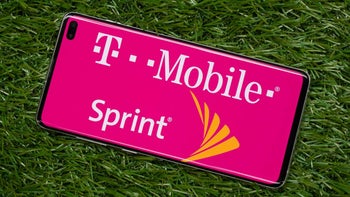DOJ says states have no business trying to block T-Mobile-Sprint merger

Makan Delrahim, the head of the Justice Department's antitrust division is concerned about the lawsuit filed by several state attorneys general that seeks to block the $26.5 billion merger of T-Mobile and Sprint. The plaintiffs argue that by reducing the number of major U.S. carriers by 25%, the remaining wireless operators will be able to raise prices more easily. There are a number of reasons why this is not true and we will explore them later in this article.
According to Bloomberg, Delrahim is concerned that by trying to put the kibosh on the merger, the states are diverging from federal regulators and are trying to block the deal on their own. The FCC and the DOJ are the two main federal regulatory agencies that needed to sign off on the transaction and both have done so. T-Mobile persuaded the FCC to give the merger a thumbs up by promising to cover 97% of the country (85% of rural America) with low-band 5G signals within the first three years after the merger closes. The carrier also said that during the same time period it would cover 75% of the U.S. with 5G signals; this would be accomplished by employing the 2.5GHz mid-band airwaves it would acquire from Sprint. Among other promises made, T-Mobile told the FCC that within the first three years after the merger closes, 63% of its customers in the states will be able to access download data speeds of 100Mbps or faster verifiable through a drive test.
Justice Department's antitrust chief says that the states should not be allowed to muck up a "national settlement"
To placate the DOJ, Sprint agreed to sell Dish Network its prepaid businesses for $5 billion in an attempt to turn the satellite television provider into a replacement for Sprint. Dish will also receive 9.3 million customers, 7,500 retail locations, 400 employees and 14MHz of 800MHz spectrum. It also will sign a seven-year MVNO agreement with T-Mobile that will allow Dish to start selling wireless service under its name while it builds a standalone 5G network.

It was back in April 2018 when T-Mobile and Sprint announced their merger
Delrahim made a speech in Washington, complaining that if the states are allowed to block a national settlement from going through "that will wreak havoc on parties' ability to merge and the government's ability to settle cases, and cause real uncertainty in the market for mergers and acquisitions." During the speech, Delrahim said that his argument isn't that states shouldn't have the ability to enforce merger laws. The point of his argument is that the courts shouldn't block a deal or agree to a settlement that is "incompatible with the relief secured by the federal government."
Sometime this month, Judge Vincent Marrero will announce his decision. During the bench trial (no jury was present), former Sprint CEO Marcelo Claure testified that if the merger with T-Mobile is blocked, Sprint will have to raise prices. DING! That rings a bell, doesn't it? The outcome of a victory for the states would result in the very thing that they are suing to prevent. And if you can wrap your head around that, another Sprint executive says that if the deal does not get done, Sprint might have to shut its doors. DING! The states are concerned that if the merger goes through, Sprint will disappear reducing the number of major U.S. carriers to three. But here is a Sprint executive who says that the same thing could occur if the states are successful in blocking the merger. And frankly, we can't imagine that Judge Marrero doesn't see this either.
The spread between the theoretical value of Sprint if the deal were to be approved and the actual value of the company's stock right now has ballooned to $3.82. The higher this spread, the more skepticism on Wall Street that the deal will close in its present form. On January 2nd the spread was $2.84 after hitting a low of 53 cents just one month after the deal was announced on April 29th, 2018.
Besides the lawsuit filed by the state attorneys general, the merger needs to be approved by California's Public Utility Commission and the deal between Sprint and Dish that the DOJ gave thumbs up to must be reviewed by Judge Thomas Kelly under the Tunney Act. The latter calls for an independent review of any agreement made by the Justice Department to make sure that it is in the public interest.










Things that are NOT allowed: